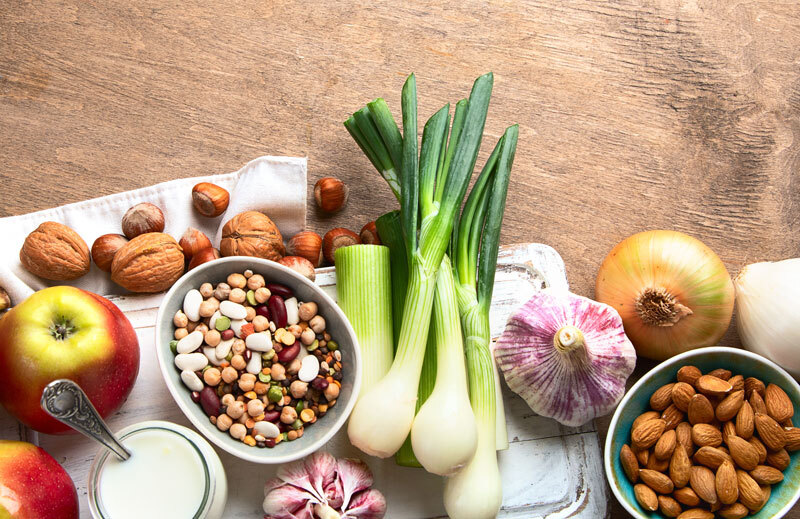Our microbiomes consist of both good and bad bacteria. And while you might think that eliminating the bad bacteria is the key to a healthy microbiome, the truth is, a balance of both is where the real magic happens. The optimal healthy human gut should contain 20,000 to 30,000 species of bacteria, and the greater diversity, the healthier the microbiome.
These days, seemingly everyone is looking for ways to foster a healthy microbiome, and probiotics are the go-to. In an online poll taken after a gut health webinar, nearly ⅓ of the audience said they recommend probiotics to 70 percent of their patients, while 26 percent recommend a probiotic supplement to roughly half of their patients. Probiotic supplements can thank rampant digestive issues, problematic skin, and brain fog for its booming 30 billion dollars global industry.
In this article, we’re taking a detailed look at probiotics, their effects, potential benefits, and more. You’ll learn how to choose the best probiotic for you and other ways you can promote a healthy microbiome.
What are probiotics?
Probiotics are a combination of live beneficial or “friendly” bacteria and/or yeast. To be called a probiotic, a microbe (think bacteria, fungi, viruses, protozoa), it must be isolated from a human and survive in the intestine post digestion.
Good bacteria or probiotics can:
- Fight off excessive harmful bacteria
- Support immune function
- Control inflammation
- Keep the body in balance
- Synthesize vitamins
- Convert fiber into short-chain fatty acids
- Support cells that line the gut to prevent harmful bacteria from entering the bloodstream
- Break down and absorb medications
Probiotics are thought to help with the following conditions:
- Digestive issues like diarrhea and constipation
- IBS
- Yeast infections
- IBD
- Urinary tract infections
- Gum disease
- Eczema
- Upper respiratory infections
Most common types of probiotic bacteria
There are two common types of bacteria that most probiotic supplements include:
- Lactobacillus
- Bifidobacterium
The most common yeast found in probiotic supplements is Saccharomyces boulardii.
How to Choose the Best Probiotic
The truth is, we don’t necessarily need to take a probiotic supplement to help foster a healthy microbiome. There are plenty of accessible, cost-free ways to support a diversity of microbes in the body.
For instance, getting out in nature, breathing in diverse air, and walking barefoot on the earth can increase a variety of good bacteria.
Other ways include:
- Consume wild fermented foods. Tune into our podcast episode on the benefits of fermented foods, or check out this article. Try our favorite fermented red pepper salsa recipe and this easy fermenting set for no-hassle fermentation.
- Pet your dog and other animals
If you are still interested in taking a probiotic, here are some things you need to know to choose the best one.
A typical probiotic supplement contains 35 billion to 50 billion CFUs of just a few species of bacteria/yeast—most likely the three mentioned above. Some products contain up to 24 species, but that is still nowhere close to the diversity of microbes that we know we need to be healthy.
Think about it this way: If you consume a probiotic every day that contains 35 billion copies of the same bacteria–diversity falls out of balance. It’s almost like fostering a monoculture.
Probiotic supplements can be a good idea if you are trying to increase specific strain levels, but chronic use should be avoided. In addition to taking a good probiotic, make sure you are supplementing with outdoor adventures, lots of pet snuggles, and yummy fermented foods.
Here are some of the best probiotics and healthy gut supplements on the market to get us back into initial balance.
Supplements for a Healthy Gut
ION* Biome
Created by the founder of Farmer’s Footprint, Dr. Zach Bush, ION* Biome is Mother nature’s solution to the toxins we have put into the world. Just as monocultures have destroyed soil biodiversity, it is, unfortunately, wreaking havoc on the human microbiome communities. Sourced from 60-million-year-old soil, ION Gut Health naturally supports microbiome balance and protects the integrity of the gut lining—even in the face of glyphosate.
Benefits include healthy immune function, proper digestion, mental clarity, and mood.
Dr. Jones and Erica absolutely LOVE this probiotic. It’s a solid combination of probiotics and antioxidants for the first in-store pharmaceutical grade probiotic available. With 5 Bacillus spores that have been shown to maintain healthy gut barrier and immune function, it’s no wonder they swear by it—especially with COVID rampant.
Not Your Average Probiotic
Formulated with a unique combination of probiotics, prebiotic fiber (healthy microbes food), and fermented enzymes, Organic Olivia’s supplement includes 20 billion CFUs of science-backed strains, fermented enzymes, and microbiome diversity to assist with digestion, bloating and overall health. We love this product because it goes beyond probiotics by including fermented enzymes. This product also has over 1,000 five-star reviews.
Seed Daily Synbiotic
Seed contains a broad spectrum of 24-strain probiotics and prebiotic. Benefits include digestive health, gut barrier integrity, gut immune function, cardiovascular health, dermatological health, and micronutrient synthesis.
A healthy microbiome means a healthy human. We can nurture our biodiversity in many ways beyond a daily capsule. Now that you’ve learned about probiotics and what it takes to foster a healthy microbiome, what methods are you most excited to try? Thoughts are welcomed in the comments below!





READ the Latest
Health Habits
Longevity
Health Habits
Health Habits
2 Comments